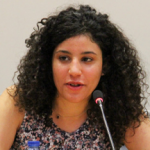This paper empirically studies the voting outcomes of the first post-revolution presidential elections in Egypt. In light of the strong success of Islamist candidate Mohamed Morsi, I identify three dimensions which can affect voting outcomes: human capital stock, wealth and employment structure. I find that less educated, poorer and more unequal districts support more Islamists. I also find an effect of the employment structure of a district on voting. I test the results by comparing the voting outcomes of the presidential elections to those of the 2011 and 2012 constitutional referendum.
ملخص
نقوم في هذه الورقة بدراسة تجريبية لنتائج التصويت في الانتخابات الرئاسية بعد الثورة الأولى في مصر. في ضوء نجاح قوي من المرشح الإسلامي محمد مرسي، نقوم بتحديد الأبعاد الثلاثة التي يمكن أن تؤثر على نتائج التصويت: مخزون رأس المال البشري والثروة وهيكل العمالة. نجد أن الفئة الأقل تعليما والمناطق الأكثر فقرا والغير متكافئة كانت ذات دعم أكثر للإسلاميين. نقوم أيضا آثار لهيكل العمالة في كل منطقة على نتائج التصويت. نقوم باختبار النتائج من خلال مقارنة نتائج التصويت في انتخابات الرئاسة لتلك الخاصة بالاستفتاء على الدستور لعامى 2011 و 2012

Research Associates
May Attallah
Assistant Professor, ESLSCA University


